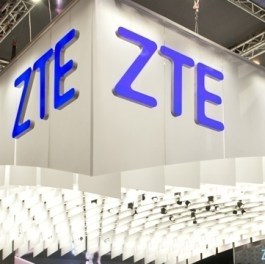News
The telco has converted around $2 billion in interest into new shares owned by the Indian government
This week, the Indian government has agree to convert the interest owed to it by Vi into equity, offering the struggling telco some momentary relief as it continued to haemorrhage subscribers to its rivals, Bharti Airtel and Reliance Jio.
Vi has been a precarious position almost since its founded (as Vodafone Idea) back in 2018 by Vodafone Group and Aditya Birla Group, having immediately struggled to compete against Reliance Jio’s aggressive pricing strategy.
To make matters worse, back in 2019, after over a decade of regulatory conflict, the Indian government announced that it would be redefining the way in which it measures mobile network operators’ adjusted gross revenue (AGR). As a result of this recalculation, the nation’s mobile operators were deemed to owe roughly $13 billion to the government, with Vi liable for almost $7 billion of this total.
Naturally, such enormous repayments quickly caused chaos in a sector already struggling to remain competitive due to the price war initiated by the arrival of relative newcomer Reliance Jio. Arguments for reducing the AGR dues or extending the repayment periods largely fell on deaf ears, leading Vi to suggest that it could be forced into insolvency.
At that time, Vi’s parent companies, Vodafone and Aditya Birla Group, said repeatedly that they would not invest more funds in the business, which was viewed by many as a sinking ship.
However, in 2021, the Indian government finally offered the telecoms sector some much needed relief in the form of a bailout package, which modified AGR repayment terms and removed spectrum usage charges, amongst other modifications.
Crucially, these emergency measures also offered Vi the opportunity to convert the interest it owes the government into equity – a plan the operator was immediately receptive too.
Now, around a year later, the conversion has been formally agreed, with Vi converting around $2 billion in debt into new shares owned by the Indian government. This will give the government a roughly 33% stake in the business.
The deal was finally announced at the end of last week, with Telecommunications Minister Ashwini Vaishnaw noting that the government decision had been largely dependent on Aditya Birla Group making a ‘firm commitment’ to inject fresh capital into the business.
The deal will give Vi the cash flow it requires to clear dues owed to companies like Indus Towers, as well as to expand its 4G and 5G mobile networks. It is also hoped that it will give Vi additional scope to refinance their existing debts.
The news of this equity conversion saw Vi’s share prices soar by almost 25%, but the question of Vi’s future is still far from certain.
According to Rohan Dhamija, Head of India & Middle East at Analysys Mason, Vi will require around $5 billion in fresh investment in order to boost its existing 4G network and begin the rollout of 5G at a scale large enough to remain competitive with rivals.
Reliance Jio and Bharti Airtel are already racing ahead with their own 5G rollouts, with the former having already covered around 225 cities.
Vi, meanwhile, has yet to announce an official launch date for its own 5G network but is expected to do so later this year.
Thus, while this deal with the government will surely serve as something of a solution to the company’s short term cash flow problems, it is far from a panacea for the businesses larger challenges. With Vi’s market share continuing to diminish, far larger investments will need to be made to keep the telco viable in the longer term.
Want to keep up with all of the latest international telecoms news? Sign up now to receive Total Telecom’s daily newsletter
Also in the news:
Bouygues Telecom lays out 2G and 3G sunsetting plans
Ofcom leans towards permitting Openreach’s Equinox 2 price cuts
Nokia: The new Metaverse and our 2030 Vision

















